[:en]Report: ACAF Indonesian Elections
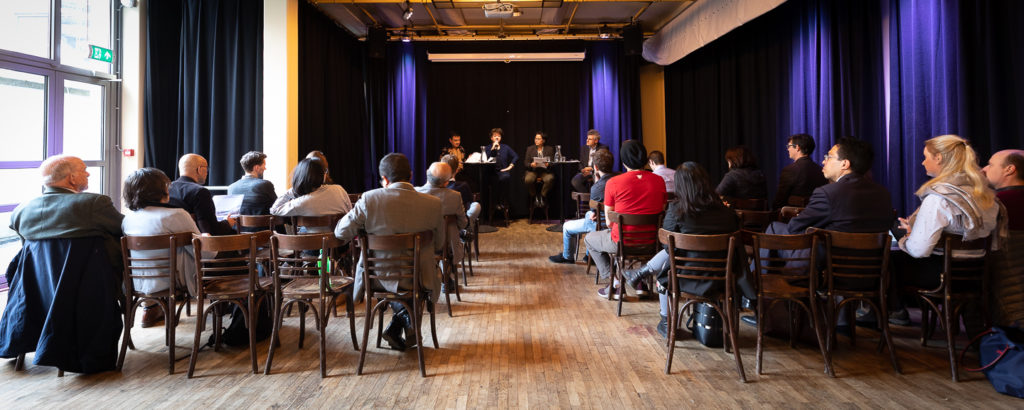
On the 17th of April, 190 million voters will choose their president and parliament in the elections of the world’s third largest democracy: Indonesia. On the eve of these elections, the LeidenAsiaCentre organized the Asian Current Affairs Forum to discuss the backdrop of the elections and the two main candidates: incumbent president Joko Widodo and his rival Prabowo Subianto.
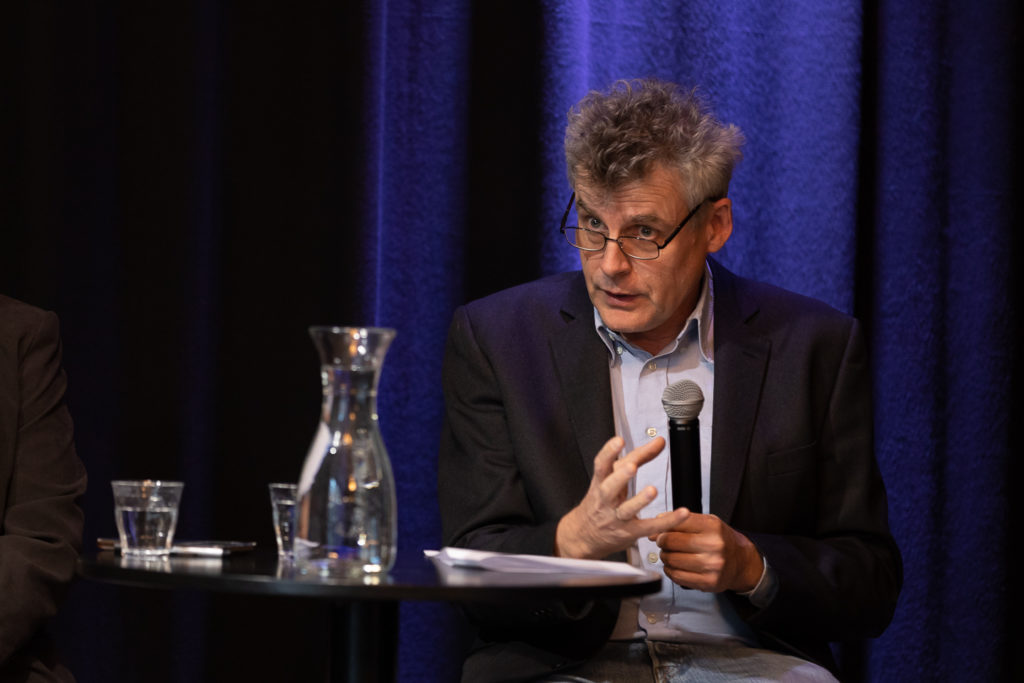
The forum was opened by Dr. David Henley from Leiden University, who introduced the background of the elections. He stated that despite the democratic “backslide” in many countries over the past decade, the Indonesian democracy is still enjoying high levels of support from the Indonesian population. On occasions, it has even been described as “vibrant”, which according to Henley “is quite an achievement”. At the same time, the Indonesian democracy is also flawed. The two candidates have made coalitions with large corporations and big money. Money is key in the elections, and the winner of the election will have to do what their funders will want them to do.
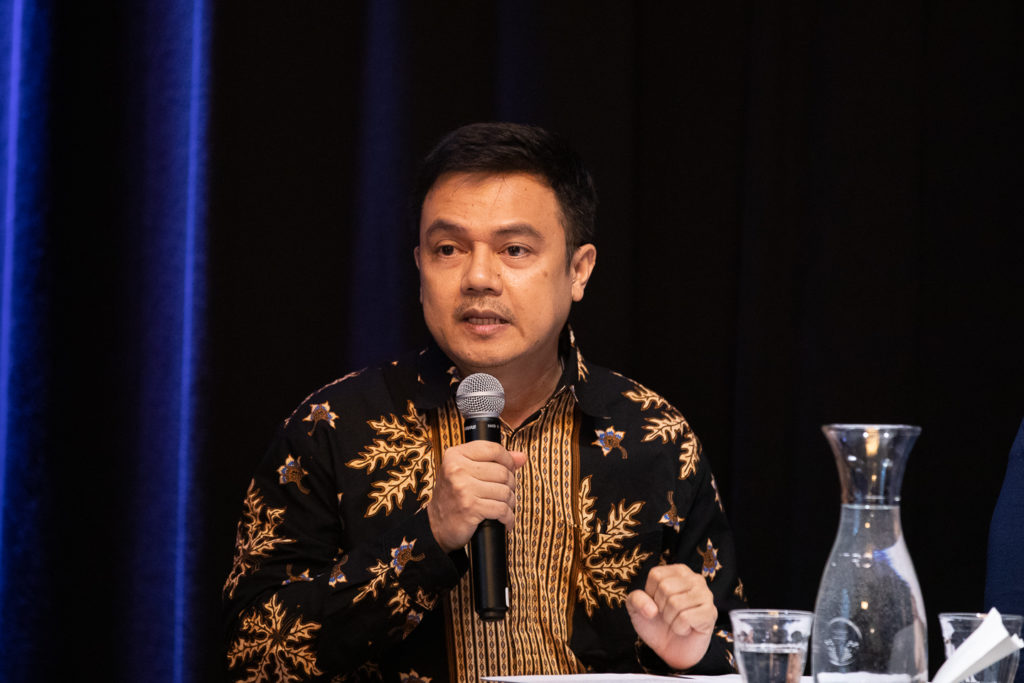
The second panelist was Dr. Firman Noor from the Indonesian Institute of Sciences in Jakarta. Noor indicated that 73% of the Indonesian population believe that democracy is the best system, yet he too stated the deficiencies: there is no fair competition and oligarchs have created a “high-cost” form of politics, meaning politics have become an arena for the oligarchs to further their own interests.
Noor also provided background on the two candidates: Joko Widodo and Prabowo Subianto. According to Noor, Joko has broken a number of promises he made when coming to power in 2014, including the addressing of human rights violations in Indonesia. These broken promises have caused a section of the population to lose trust in Joko. The big infrastructure projects he launched – including a new subway in Jakarta – are respected, but many people do not feel like they need them. On the other hand, Prabowo has a more orthodox-Islamic outlook, leading him to be labelled as pro-caliphate by his opponents.
As the final panelist, Dr. Ratna Saptari from Leiden University introduced a human rights perspective of the elections, particularly zooming in on the issue of blank votes or protest votes. According to her, these protest votes are common during any Indonesian election, but this is a particularly big issue during this year’s elections. A number of human rights organisations have already stated that they cannot endorse any candidate and that they will vote blank.
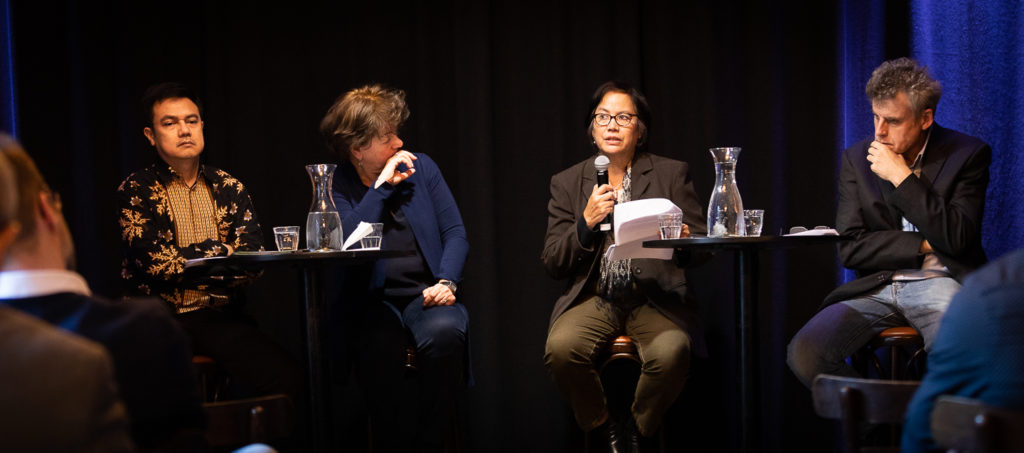
After the presentations by the panelists, there was time for questions from the audience. Why is there no clear left-right wing distinction in Indonesia like in Europe? According to the panelists, the 1965 genocide and many other conflicts in Indonesia have eliminated the classical ideological spectrum. Instead, the alternative spectrum as we find it in today’s Indonesia is the orthodox Muslim versus secular spectrum.
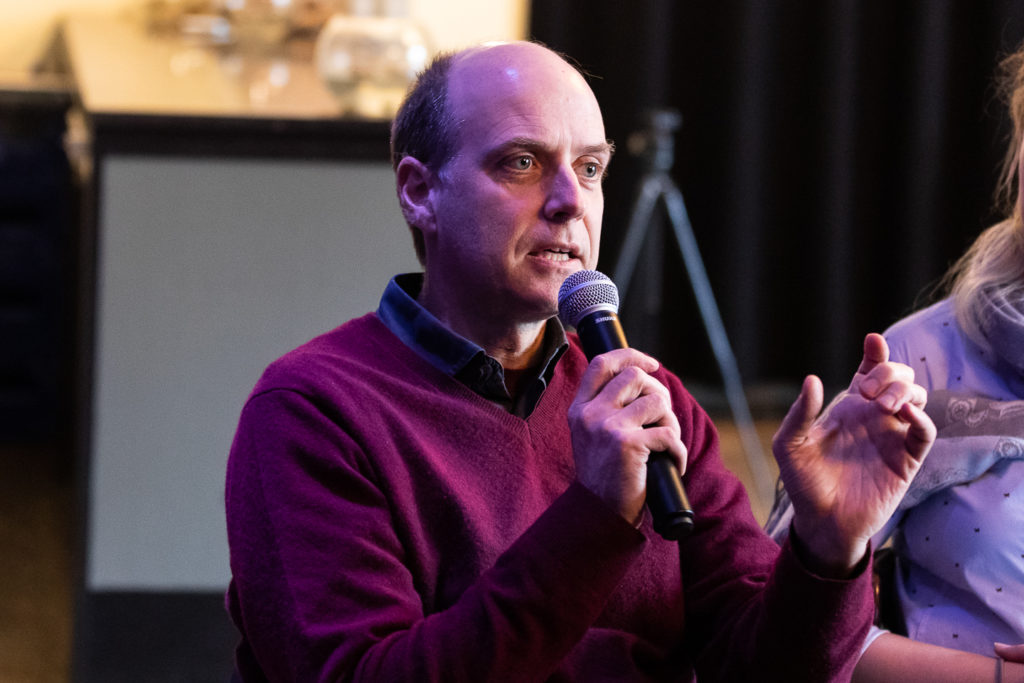
Most importantly, what will the consequences be if either candidate wins the elections? David Henley responded that both sides have made coalitions with the big money, so there will not be a change in the money politics. Firman Noor added to it that perhaps the main difference is that Joko’s supporters are generally more liberal muslims and that more minority groups support Joko, whereas Prabowo enjoys more support from orthodox Muslims. Therefore, the winning candidate will attempt to satisfy these groups supporting them in particular.

